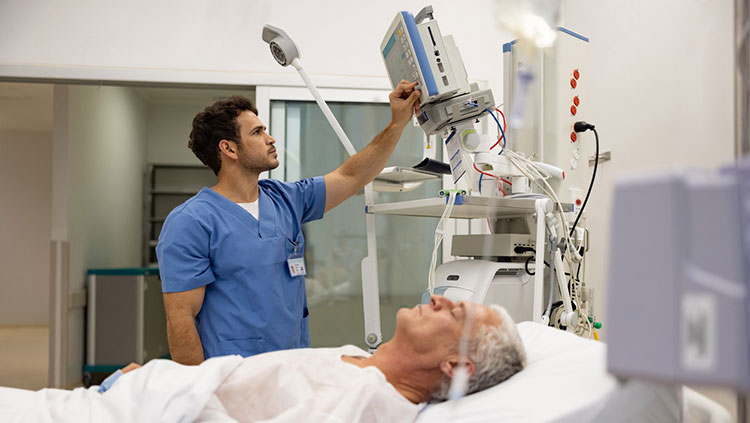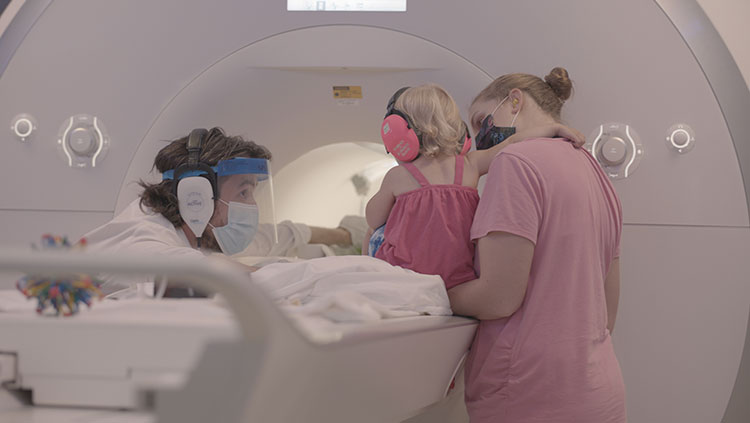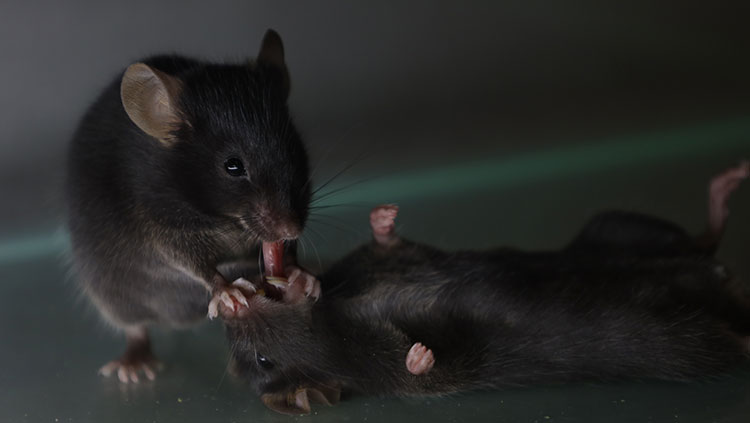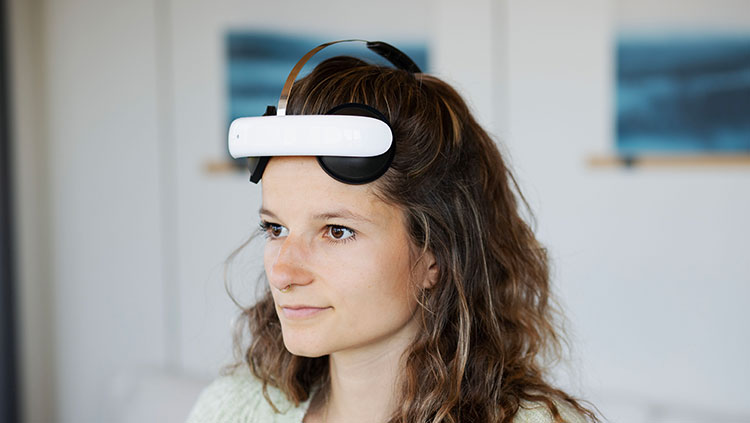ICYMI: A Portion of Unresponsive Brain Injury Patients Are Actually Conscious
- Published9 Sep 2024
- Author Bella Isaacs-Thomas
- Source BrainFacts/SfN

Around a quarter of brain injury patients who can’t outwardly communicate are nonetheless conscious, according to a cohort study published August 14 in the New England Journal of Medicine. The patients couldn’t complete a task like moving a finger when verbally asked; however, researchers detected brain activity in some patients when monitoring them with brain imaging techniques.
Two hundred and forty-one unresponsive patients from medical centers around the world were asked to picture themselves completing tasks like playing tennis while researchers measured potential brain activity, according to Nature. Researchers examined patients using functional magnetic resonance imaging (fMRI), electroencephalography (EEG), or both tools. The tests picked up brain activity for around 25% of unresponsive patients during the tests.
Big Picture: A person’s ability to respond mentally, but not physically, to cognitive tasks is a condition known as cognitive motor dissociation. Although previous, smaller studies have documented the phenomenon, this latest one assessed a larger cohort of patients. According to Nature, experts believe further testing and standardization in study methods across facilities could reveal an even higher percentage of patients are conscious, which would have important implications for patient care. The publication also noted that seemingly unresponsive patients could potentially use BCIs, or brain-computer interfaces, to communicate with loved ones and care teams.
Read More: One-quarter of unresponsive people with brain injuries are conscious. Nature
More Top Stories
- A new approach to brain stimulation could offer more symptom relief for people with Parkinson’s. The Guardian
- Researchers identified a neuropeptide that may trigger limb detachment in starfish. Popular Science
- Mice with anorexia symptoms ate more food and gained weight when genetically altered to secrete an appetite-stimulating protein. Science News
- New research identified which activated parts of the brain allow listeners to anticipate and process transitions between segments of music, or beat drops. New Scientist
- Researchers discovered Pacinian neurons are more sensitive to environmental stimuli than previously thought by monitoring mice as they moved about freely. The Transmitter
- People with untreated high blood pressure have a 42% higher risk of Alzheimer’s disease compared to those who control hypertension with medication, a new study suggests. CNN
- Stress can cause the brain to shut down gut glands connected to the vagus nerve, reducing beneficial gut bacteria and rendering people more vulnerable to infection. Nature
- A new theory posits cognition could be partially facilitated by quantum entanglement of photons within myelin, a cylindrical protective layer which covers axons. Popular Mechanics
CONTENT PROVIDED BY
BrainFacts/SfN
References
Bodien, Y. G., Allanson, J., Cardone, P., Bonhomme, A., Carmona, J., Chatelle, C., Chennu, S., Conte, M., Dehaene, S., Finoia, P., Heinonen, G., Hersh, J. E., Kamau, E., Lawrence, P. K., Lupson, V. C., Meydan, A., Rohaut, B., Sanders, W. R., Sitt, J. D., Soddu, A., … Schiff, N. D. (2024). Cognitive Motor Dissociation in Disorders of Consciousness. New England Journal of Medicine, 391(7), 598–608. https://doi.org/10.1056/nejmoa2400645
What to Read Next
Also In Neuroscience in the News
Trending
Popular articles on BrainFacts.org


.jpg)
















